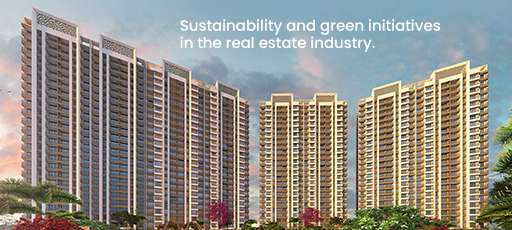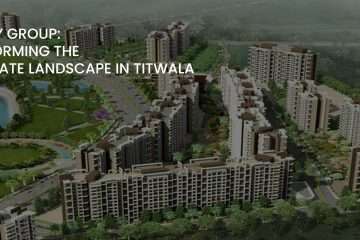Real estate that is designed, created, and developed in a way that marks minimal negative impact on the environment is referred to as a sustainable approach. The trend to curate sustainable developments is being driven forcefully due to the factors like chances to reduce operating costs and increase awareness of the need to protect the environment on a global scale, which has fueled the real estate industry’s movement toward sustainability.
The constructions can be transformed into sustainable spaces using multiple ways like adopting green initiatives by real estate, performing routine maintenance, and switching to energy-efficient appliances and lights on-site renewable energy systems.
Prerequisite of Sustainability in the Real Estate Industry:
Lower operating expenses: Sustainable buildings are made to use resources more wisely and conserve them, which reduces the costs associated with heating, cooling, and maintaining the structure.
Better resale value: Structures with modern infrastructure and equipment that satisfy performance standards for sustainability have a higher resale value. Homes specifically sell for 2.7% more when they have an energy efficiency rating than when they don’t.
Accelerating Reputation: It is better for reputation and shows a commitment to the community and the environment to operate out of a sustainable facility that reduces your impact on the environment and society. In turn, this builds stakeholder trust, improves community ties, and draws in new clients.
Healthier enclaves: Sustainable construction establishes healthy lifestyles as a result of using less intrusive and polluting construction techniques, fewer toxic materials (like paints containing VOCs), requiring less resource-intensive maintenance, and designing areas that encourage wellness for both individuals and the environment.
The adoption of the Indian Green Building Council (IGBC), a branch of the Confederation of Indian Industry, is one of the major endeavors of the Indian real estate sector to reduce climate change (CII). By 2025, they want to create a more sustainable environment throughout the entire country of India, making them a leader on a worldwide scale.
Throughout promoting green building principles in the nation, it also closely collaborates with state governments, federal governments, the World Green Building Council, and bilateral and multilateral organizations. The IGBC has set its ambition to achieve net zero carbon construction by 2050 in response to India’s promise to achieve net zero carbon emissions by 2070 under COP26.To reach this goal many builders and developers have started to take green initiatives in the real estate industry.
The potential for investments in environmentally friendly infrastructure is particularly high in India. India has stepped up its leadership in recent years by lowering its carbon emissions, which has helped it garner recognition on a worldwide scale. Additionally, the future of green building in India has been bright for several years and will likely continue to be so. However, more has to be done. Real estate firms must strive to improve and promote a healthy way of life while addressing the requirements of our burgeoning population in a civilized manner.
Regency group, one of the top builders in Kalyan designs patterns that promote sustainability and deliver quality at the same time. Intending to make the real estate industry a major contributor towards sustainability, Regency Group paves the way to establish sustainable urban spaces. The projects curated by Regency Group ensure to offer residents a modern approach to living with the implementation of sustainable and green initiatives for a brighter tomorrow.
Reference – https://greenbusinessbureau.com/industries/real-estate/sustainable-real-estate-trends-and-trajectories/#:~:text=There%20are%20a%20variety%20of,%2C%20microhydropower%20and%20hybrid%20systems
Reference – https://www.constructionweekonline.in/people/sustainable-practices-in-real-estate


